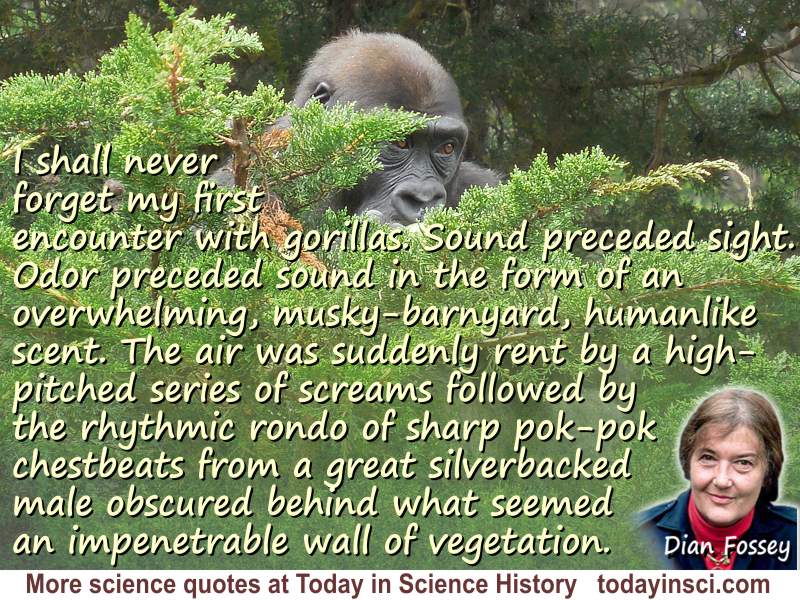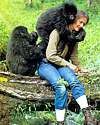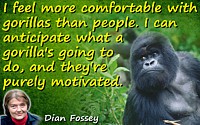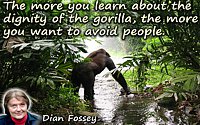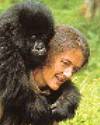 (source)
(source)
|
Dian Fossey
(16 Jan 1932 - 26 Dec 1985)
American zoologist who spent years studying and protecting the mountain forest gorillas of Rwanda, central Africa, about which she wrote in Gorillas in the Mist (1983).
|
Dian Fossey - My first encounter with gorillas
Illustrated Quote - Large (800 x 600 px)
More Dian Fossey quotes on science >>
The quote comes from early in the first chapter of Dian Fossey's well-known biographical book, Gorillas in the Mist. She had flown in September 1963 to Africa to see the mountain gorillas of Mt. Mikeno in the Congo. She first met with anthropologists Louis and Mary Leakey excavating at Olduvai. From there she went to Kabara in the Virungas mountains, and was led into the forest by photographers Joan and Alan Root, then filming a documentary on the mountain gorillas.
They froze until the sounds faded and crept forward through the vegetation and saw “an equally curious phalanx of black, leather-countenanced, furry-headed primates peering back” at them.
The screams and chest-beating were of alarm, not ferocity, and the male gorillas remained as curious to view the visitors with the movie camera as they were to capture a record of the gorillas. The great apes obligingly displayed various actions whether for intimidation or “as if competing for attention.” Already Fossey interpreted their individuality and even shyness. She was left with a captivating impression from that first encounter when her short stay ended and Fossey reluctantly returned her job in America. She was already in no doubt that she would “return to learn more about the gorillas of the misted mountains.”
- Science Quotes by Dian Fossey.
- 16 Jan - short biography, births, deaths and events on date of Fossey's birth.
- Dian Fossey - context of quote The dignity of the gorilla - Medium image (500 x 350 px)
- Dian Fossey - context of quote The dignity of the gorilla - Large image (800 x 600 px)
- Dian Fossey - context of quote I feel more comfortable with gorillas - Medium image (500 x 350 px)
- Dian Fossey - context of quote I feel more comfortable with gorillas - Large image (800 x 600 px)
- Dian Fossey - context of quote My first encounter with gorillas - Medium image (500 x 350 px)
- Gorillas in the Mist, by Dian Fossey. - book suggestion.
